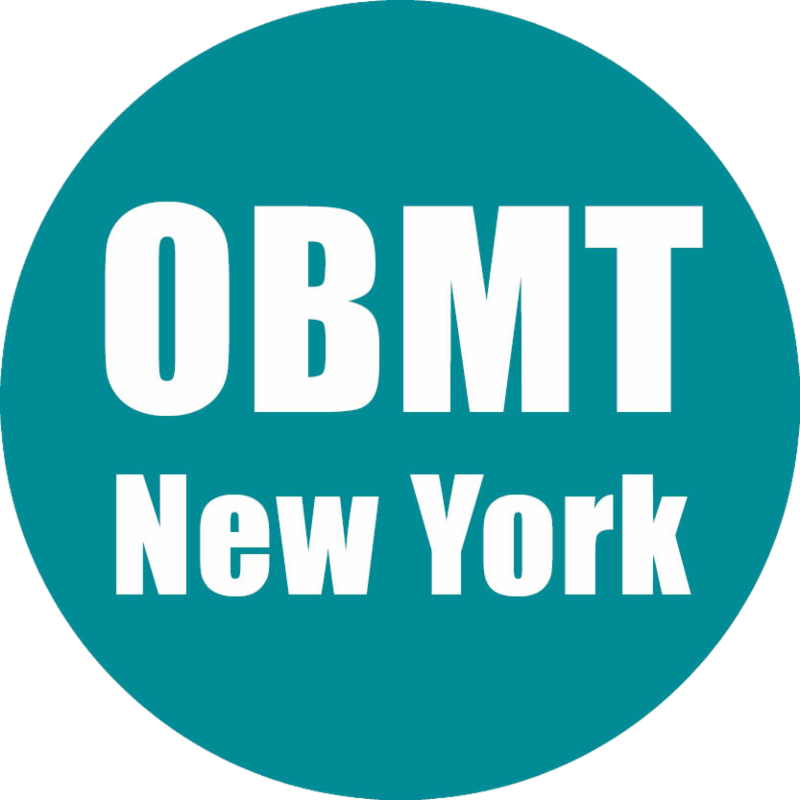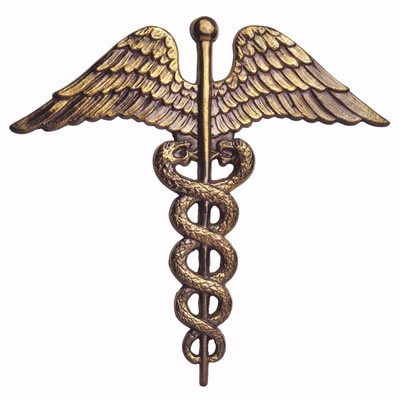|
Featured Products
Comes with a syllabus
and CD or DVD
$99 (was $189)
Comes with a syllabus
and CD or DVD
$189 (was $219)
|
|
Contact Us
| |
Bariatric Physicians
2821 S. Parker Road
Ste. 625
Aurora, CO 80014
303.770.2526 | asbp.org
Staff
Laurie Traetow, CAE, CPA
Executive Director
laurie@asbp.org
Beth Amelon
Sponsorships & Exhibits Coordinator
beth@asbp.org
Carly Crosby
Meeting Planner & Executive Coordinator
carly@asbp.org
Marcie Gonzales
Receptionist
marcie@asbp.org
|
|
|
|
Obesity Medicine e-Weekly
|
News
ASBP leadership attends CEO Symposium
Members of the ASBP executive committee are attending a CEO Symposium, presented by the American Society of Association Executives (ASAE). Here, the board members and executive director are taking part in an in-depth leadership training program specifically addressing the needs of associations like ASBP. Those attending are (L-R in photo): Laurie Traetow, CAE, CPA (Executive Director); Wendy Scinta, MD, MS (Vice President); Deborah Bade Horn, DO, MPH, FASBP (President-elect); and Eric C. Westman, MD, MHS (President).

Congratulations to new ABOM Diplomates
After a record-breaking number of applications to take the certification exam in 2014, the American Board of Obesity Medicine (ABOM) has 342 new Diplomates certified in obesity medicine and 14 physicians who re-certified this year. Congratulations to those 356 physicians! The 2015 exam will take place Dec. 5-12. The early application deadline is July 13, and all applications are due no later than Aug. 24. To learn more about the certification exam, contact ABOM directly at info@abom.org or 303.770.9100.  Featured member benefit: Mentorship program Featured member benefit: Mentorship program All ASBP members have the opportunity to participate in the mentorship program, either as a mentor or a mentee, at Obesity Medicine 2015 and Overcoming Obesity 2015, ASBP's spring and fall conferences. As a mentee, you will be matched with a mentor and a small group of other mentees who can help answer your questions about entering the world of obesity medicine. As a mentor, you will have a small group of mentees, many of whom are newer to the field of obesity medicine, and you can share with them your advice and expertise. To participate in the program, simply check the "mentor" or "mentee" checkbox when you register for the conference. Questions? Email membership@asbp.org. 
Next Obesity Basic Medical Treatment course location: New York City
Do you have a colleague near New York City who doesn't currently practice obesity medicine but is interested in doing so? Tell them to register for Obesity Basic Medical Treatment. We're hosting a course in New York on Saturday, Feb. 21. This newly revised course introduces the different treatment options available to patients affected by obesity and provides an idea of how to approach obesity treatment. Learn more about this course. Not in the New York area? See a list of all 2015 dates and recommend a course in a city near you!
|
Resources
 The Obesity Treatment Foundation (OTF) helps keep you up to date on current obesity research! Each week, OTF publishes a brief overview of three recent studies so you can be in the know, even during your busiest days. Click the titles below to view the full articles, and please consider supporting OTF so we can continue to provide you with updates on the latest research. The Obesity Treatment Foundation (OTF) helps keep you up to date on current obesity research! Each week, OTF publishes a brief overview of three recent studies so you can be in the know, even during your busiest days. Click the titles below to view the full articles, and please consider supporting OTF so we can continue to provide you with updates on the latest research.
Finan, B., et al. Nature Medicine, 2015.
A team of researchers engineered a new peptide that acts as an agonist in three metabolically related receptors: glucagon-like peptide-1 (GLP-1), glucose-dependent insulinotropic polypeptide (GIP), and glucagon receptors. This peptide caused an increased energy expenditure from the glucagon action; GLP-1 action reduced caloric intake and improved glucose control; and GIP action potentiated the incretin effect. These effects led to a decrease in the rodents' body weight by more than 25 percent over three weeks and also led to lower blood glucose and decreased food intake. This study suggests that this poly-pharmaceutical strategy may be a powerful approach to reversing obesity and related metabolic disorders.
Harcombe, Z., et al. Open Heart, 2015.
A meta-analysis of the studies that drove the 1977 dietary recommendations were evaluated. The researchers found six relevant clinical trials that looked at the relationship between dietary fat, cholesterol levels, and heart disease. The analysis found that the guidelines that recommended keeping fat to less than 30 percent of calories and saturated fat to 10 percent or less was never backed by evidence. The low-fat dietary interventions resulted in no differences in all-cause mortality and non-significant differences in heart disease mortality. There were reductions in serum cholesterol levels, but this did not translate into significant differences in heart disease or all-cause mortality. At the time the guidelines were issued, the field of what is now known as ''evidence-based medicine'' was just beginning. This analysis concludes that these dietary recommendations were introduced for 220 million U.S. citizens and 56 million U.K. citizens by 1983 in the absence of supporting evidence from randomized controlled trials. The government recommendations for dietary fat were not tested in any trial before they were introduced to the public.
Sub-chronic sleep restriction causes tissue specific insulin resistance
Rao, M. N., et al. J Clin Endocrinol Metab, 2015.
The effects of shortened sleep duration on insulin sensitivity were evaluated. Compared to eight hours of sleep, five nights with four hours of sleep each night led to an increase in stress hormones (cortisol and catecholamines), increased circulating free fatty acids and beta-hydroxybutyrate (a ketone body). There was a decrease in peripheral insulin sensitivity, but hepatic insulin sensitivity was not changed with sleep restriction. There was an increase in hepatic gluconeogenesis, a decrease in glycogenolysis, and an increase in hepatic fat oxidation. Resting energy expenditure did not change with sleep restriction, but the proportion of calories burned from fat increased (lower respiratory quotient). This study suggests that there are unique metabolic consequences to sleep restriction, which may have indications for treatment of patients with disturbed sleep, such as those with sleep apnea.
|
Advocacy
Feb. 6 OCC Advocacy Day
On Feb. 6, American Society for Metabolic and Bariatric Surgery Executive Director, Georgeann Mallory, and ASBP Advocacy Committee member, Dr. Krishna Doniparthi, traveled from Florida and Georgia, respectively, to participate in the Obesity Care Continuum's (OCC) first monthly advocacy day during the 114th Congress. Advocacy efforts focused on the Florida and Georgia congressional delegations -- educating legislators about the Treat and Reduce Obesity Act (TROA) and urging them to co-sponsor the legislation when it is reintroduced in the upcoming months. In addition, OCC advocates highlighted how implementation of the Affordable Care Act at the state level continues to discriminate against those affected by obesity. Mallory and Doniparthi visited the offices of Sen. Johnny Isakson and Reps. Patrick Murphy, Corrine Brown, Alcee Hastings, Gwen Graham, Gus Bilirakis, John Lewis, and Tom Price.

ASBP and other OCC groups support recent EEOC legal action on employer wellness programs
ASBP joined other OCC groups in signing onto a Jan. 27 coalition letter to the Equal Employment Opportunity Commission (EEOC) coordinated by Families USA. The letter commends the EEOC for its recent legal actions against select employers' wellness programs that violated the Americans with Disabilities Act (ADA) and other critical nondiscrimination laws (EEOC v. Flambeau Inc., Civil Action No. 3:13-cv-00638; EEOC v. Orion Energy Systems, Civil Action 1:14-cv-01019; EEOC v. Honeywell Inc., Civil Action 1:14-cv-04517). The letter stated, "These actions are critical to ensuring that employers' wellness incentive programs preserve employees' rights under the ADA, the Genetic Information Nondiscrimination Act of 2008, and all other nondiscrimination laws, in addition to complying with requirements under the Affordable Care Act and HIPAA."
|
Education

 Register now for the highly anticipated spring conference Register now for the highly anticipated spring conference
- Full Conference
30 CME | April 8-12
Includes the Spring Obesity Summit and your choice of either Obesity Medicine Essentials (register) or the Nutrition and Metabolism Symposium (register).
- Dr. Harold C. Seim Obesity Medicine Essentials
12.75 CME | April 8-9 | Register
Gain practical knowledge in this how-to series about the medical care of patients affected by obesity.
You won't want to miss: Basics of Pharmacotherapy, by Dr. Dan Bessesen. This lecture will provide an overview of each of the available weight-management medications and explain how to incorporate them into an individualized treatment plan.
- Nutrition and Metabolism Symposium
12.75 CME | April 8-9 | Register
Broaden your understanding about a range of diet and nutrition options based on scientific research.
You won't want to miss: Dietary Adherence: Any Diet Approach, by Dr. Holly Wyatt. This lecture will argue that any diet can work for any patient regardless of macronutrient composition, as long as the patient can stick to it.
- Spring Obesity Summit
17.25 CME | April 10-12 | Register
Enhance your knowledge about the latest scientific research and trends related to the evaluation and treatment of patients affected by obesity.
You won't want to miss: Long-term Weight Maintenance: What Can We Learn from Losers?, by Dr. James O. Hill. This lecture will analyze statistics on weight maintenance after weight loss and explain how this data can be used to better predict what techniques result in long-term weight loss.
Want more? Save the date for Overcoming Obesity 2015: Diagnose. Personalize. Treat. in Washington, D.C., from Sept. 30-Oct. 4, 2015.
  Obesity Basic Medical Treatment course registration now available Obesity Basic Medical Treatment course registration now available
Do you know anyone who wants to learn the basics of medical obesity treatment but doesn't know where to start? The Obesity Basic Medical Treatment (OBMT) course teaches physicians and health care providers who are brand new to the field of obesity medicine about the basic approaches to obesity treatment. Attendees can then decide whether or not to pursue further obesity medicine education or understand when to refer a patient to an obesity medicine clinician. Learn more about this course, or download a printable registration form. Online registration is also available for the following dates and cities.
|
|
|
|
|